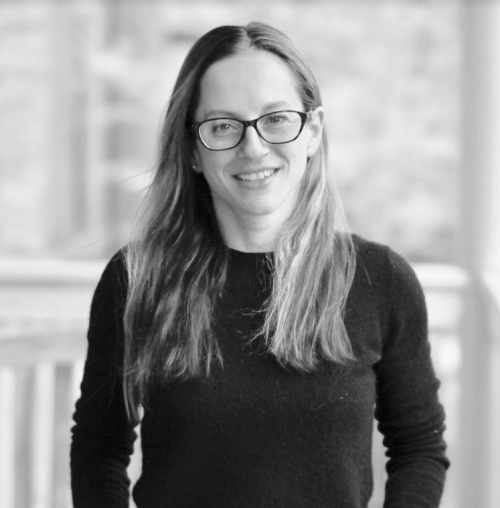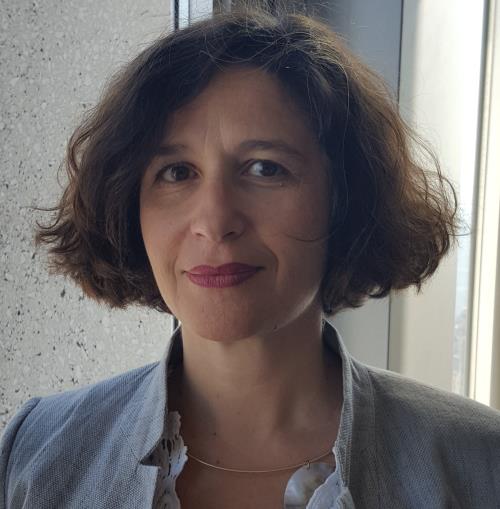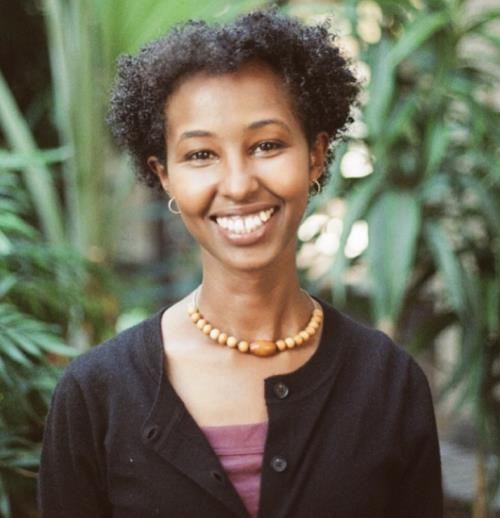Governance and Regulation of Education Technologies: How to ensure EdTech serve in children's best interests?
EDDS
Session 391
Governing education technologies and data practices in education
Evidence gathering and multi-stakeholder involvement is needed to achieve consensus around governance, scrutiny, and oversight of the growing dependency of educational institutions on data-intensive proprietary algorithmic systems (education technologies). Much debate surrounds the risks of datafication, dataveillance and dehumanising the learning and teaching experience in schools in the "Global North" where digitisation of education was propelled further following the Covid-19 health pandemic. The fast digital transformation of education is also manifesting in the "Global South". However, while there are opportunities for access to educational resources, connecting with others, and closing educational gaps, much concern surrounds the impact of these proprietary systems on children's basic human right to education.
The governmental scrutiny and oversight of education technologies across the globe is fragmented, leaving policymakers to the reliance of technical experts and industry itself to guide the processes of adoption and integration, while educational institutions struggle to figure out how to choose, protect, and benefit from the plethora of technologies that come their way.
EDDS dedicates this panel to discuss how to govern and meaningfully introduce trusted, ethical and evidence-based quality EdTech products - a top-down, outside-in and bottom-up approach where not only educational institutions and policy makers are held to accountability, but the EdTech industry, too.
The session will follow a "Fishbowl" design where both panel members and audiences can respond to the given questions (or equally audience members can pose a question). The session will have two aims.
- First, it will draw perspectives from all stakeholders and the audience on the benefits as well as the risks of digitised education and the integration of advancing data-intensive proprietary algorithmic systems. Voices will come from the teaching community, the EdTech industry, educational research expertise, policy makers, as well as the audience. [Moderator will pose prepared question is and take questions from the audience]
- And second, the session will discuss ways forward for governance and regulating the digital transformation of education with focus on national, cultural, and contextual values and needs as a point of departure to driving ethical EdTech practices that prioritise children's basic human rights and best interests in education.
Audiences will be equal discussants in this session as their input and critical assessment will be elicited to ensure inclusivity, active participation, and multi-stakeholder voice.

Dr Velislava Hillman is founder of Education Data Digital Safeguards (EDDS) and partner at Etoile Partners where she engages directly with EdTech companies to build trust, transparency, and accountability around pedagogic evidence and companies’ data responsibilities and ethical practices. She is also Visiting Fellow at the London School of Economics where she researches on education, digital technologies, governance, and children’s rights.
Dr Hillman has been working with international organisations and research communities from New Zealand to Honk Kong, from Brazil to Bulgaria, and developed a comprehensive audit and evaluation framework to assess and benchmark EdTech companies together with various global partner organisations who seek to establish independent oversight to ensure that EdTech companies meet appropriate standards beyond data privacy.
To bring cultural change and drive ethical practices in the growing EdTech industry, through EDDS Dr Hillman has set up independent audits and assessment of EdTech operators to ensure that safe, privacy-preserving and human-rights respecting EdTech products are used in schools.

Anna Cristina D'ADDIO is an Economist by background and holds one PhD in Quantitative Economics (European Doctoral Program) from CORE and IRES at the Catholic University of Louvain-la-Neuve (Belgium), and another PhD in Public Economics from the University of Pavia (Italy). She is Senior Policy Analyst in the Global Education Monitoring (GEM) Report team at UNESCO where she leads the thematic work, the PEER project, and is the gender focal point. Prior to this position, Anna worked at the OECD for more than 10 years on a comprehensive list of issues with a particular emphasis on the role of policies. Before that Anna was a research professor in micro-econometrics applied to labour market/education issues. She carried out research in several universities and research centers including the Center for Applied Econometrics (CAM), University of Copenhagen; the Higher Institute for Labour Studies (HIVA), Catholic University of Leuven; the Department of Economics, University of Aarhus; the Center of Operations Research and Econometrics (CORE), and IRES of the Catholic University of Louvain-la-Neuve.

Björn Haßler has over 15 years of experience in education and international development. He is an advocate for Global Public Goods, Open Access, and Open Education and their role in global equity. He specialises in sustainable and scalable approaches for programme implementation. His research interests include digital technology (for education and research), teacher professional development, education systems research and equity/inclusion, work-based learning, and the role of organisational learning for effective research designs and programming. He is a passionate communicator with strengths in developing and leading successful collaborations, specialising in sustainable and scalable approaches to improving people’s lives. Björn is a Technical director/founding director at EdTech Hub , visiting researcher at the Faculty of Education (University of Johannesburg ), Alliance member of The Digital Schools , Board Member of METEA, and Advisory Board Member of Alpha Pub.

Michael has been championing technology in schools for the last 17 years - 5 years running digital transformation projects, and 12 years leading his own ventures.
He is the CEO of EdTech Impact, the world’s largest open, evidence-driven marketplace, designed to help schools make smarter buying decisions. The platform connects educators with trusted EdTech based on their needs and contexts, and motivates companies to publish consistent feedback on how their product is performing.
Michael has been a member of the Department for Education's EdTech Leadership Group, was voted to join BESA's Executive Council, Co-Founded the UK's EdTech Evidence Group, and enjoys sharing his findings at various advisory boards.

Molly Esquivel is a junior high school science teacher and an EdD candidate. As an educator she has observed an alarming behavior shift among students in tandem with evolving power dynamics among educational administrators as a result of the growing digitalization and ubiquitous use of technologies with surveillance and manipulative capacities. For her doctoral research, Molly focuses on the provocative nature of technology in the classroom specifically that of teacher autonomy, demoralization, and unintended alterations to pedagogy. Through this she aims to (re)define the use and purpose of digital technologies in the classroom while she also seeks to contribute to the development of robust policies that address the adoption of education technologies in schools.

Lula is a multidisciplinary professional with 6+ years of experience working at the intersection of education, climate change and digital innovation in Africa and Europe.
She has a diverse experience designing, implementing and improving a wide range of digital products and services across different industries and business models, from Saas to non for profit and foundations. Lula also has experience conducting research and evaluations for clients, including FCDO, SIDA, World Bank, UN agencies, European Commission and Apple to support the monitoring and implementation of SDGs.
In recent years, Lula has worked in education, including for a global Edtech firm where she managed and implemented learning management systems, AI-driven computer adaptive learning and assessment platform. She found her biggest passion in conducting research and supporting teachers and schools to apply evidence-based digital pedagogy strategies to help close attainment gaps and support marginalised learners.
Lula currently works at Open Development Education as a Senior Analyst. She also works at EdTech Hub Helpdesk, where she supports decision-makers to use evidence-based research to inform education technology programs and policies.
While she is a keen supporter of Education technology solutions to ensure access to quality learning, her main concerns are data privacy, digital literacy and digital inclusion.
Lula has masters from Lund University. Originally from Somalia, Lula grew up in Sweden and Kenya -- from a refugee background, Lula works at voluntary initiatives supporting refugee women and girls in the UK and Sweden.

Jeff Janover began his career as a structural engineer in the nuclear power industry. He worked as a Professional Engineer, consultant, and programmer, performing computer-aided finite element analysis on a wide range of projects, and delivering seminars on advanced dynamics to many engineering firms. Subsequently, Mr. Janover was the Director of Technology for over twenty years in a New Jersey public school district. He has worked with a wide range of data and information systems with both student and administrative focus and developed services for data interchange between these systems. Mr. Janover is the VP of Security and Interoperability with ClassLink, and is using his engineering, database design, and programming skills to help build robust data interoperability systems for the academic community and to ensure the confidentiality, integrity, and accessibility of data. His hobbies include scuba diving, photography, tennis, amateur radio, and Olympic archery. Mr. Janover is married, has four children and three grandchildren, and lives in Southwest Florida.
-
 C1. The role of governments and all stakeholders in the promotion of ICTs for development
C1. The role of governments and all stakeholders in the promotion of ICTs for development
-
 C4. Capacity building
C4. Capacity building
-
 C5. Building confidence and security in use of ICTs
C5. Building confidence and security in use of ICTs
-
 C7. ICT applications: benefits in all aspects of life — E-learning
C7. ICT applications: benefits in all aspects of life — E-learning
-
 C10. Ethical dimensions of the Information Society
C10. Ethical dimensions of the Information Society
Governing the Digital Transformation of Education to Ensure ICTs Prioritise Children's Best Interests and Human Rights
-
 Goal 4: Ensure inclusive and equitable quality education and promote lifelong learning opportunities for all
Goal 4: Ensure inclusive and equitable quality education and promote lifelong learning opportunities for all
-
 Goal 9: Build resilient infrastructure, promote sustainable industrialization and foster innovation
Goal 9: Build resilient infrastructure, promote sustainable industrialization and foster innovation
-
 Goal 16: Promote just, peaceful and inclusive societies
Goal 16: Promote just, peaceful and inclusive societies